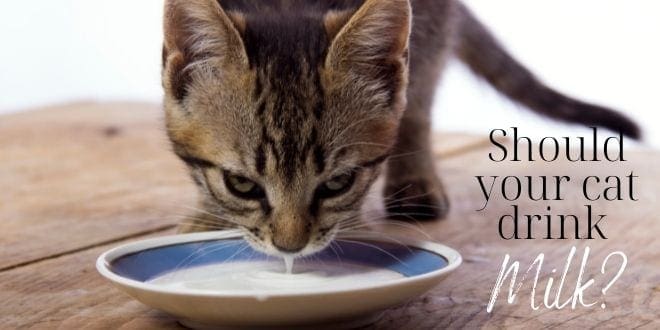
You’ve seen countless TV shows, movies, and pictures with cats enjoying a bowl of milk. Have you ever thought about whether milk is actually a good thing for cats to drink? Are you really doing that stray a favor by placing a saucer of milk out on your back porch? The answer may surprise you.
Most Cats Are Lactose Intolerant
Cow’s milk is actually not a good choice for cats and is certainly not to be used as a water replacement. Once kittens are weaned they actually become lactose intolerant. Their bodies no longer produce an adequate amount of the lactase enzyme that’s crucial for digesting lactose. If you feed milk to your cat it could result in diarrhea.
The milk kittens receive from the mother while nursing, or replacement formula orphaned kittens are fed is not the same as cow’s milk. The milk that kittens thrive on is higher in protein and arachidonic acid.
If you’ve given a little milk as a treat to your cat and there haven’t been any digestive trouble as a result, then offering a small amount now and then is ok, but limit the quantity and frequency. There are also cat-specific milk treats available at your pet supply store or online.
Milk Should Never Replace Water
Milk is never to be used as a replacement for water. Offering your cat milk instead of water will result in dehydration. Make sure your cat always has a supply of clean, fresh water.
Need More Information?
If you have any questions about your cat’s health, contact your veterinarian. For more information on cat behavior and training, refer to the best-selling books by Pam Johnson-Bennett. Pam’s books are available at bookstores everywhere and online. We’ve included Amazon links here on our website.
If you have a question about your cat’s behavior or health, contact your veterinarian. This article is not intended as a medical diagnosis nor is it a replacement for your cat’s regular veterinary care. This article is for general information purposes only.

